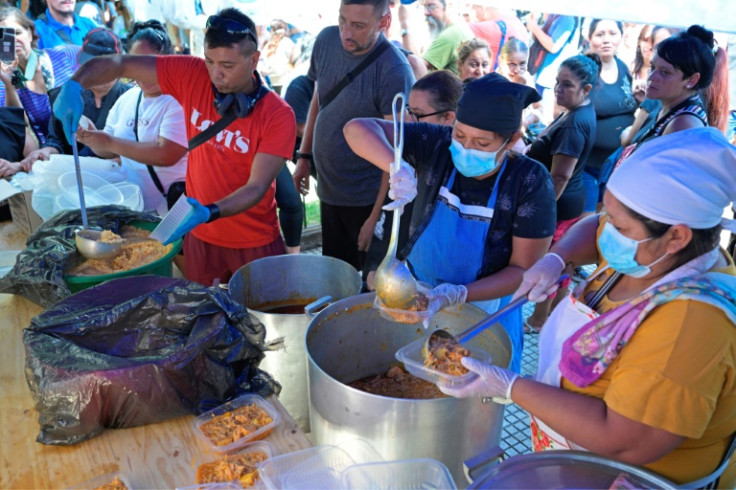
An Argentine court on Monday ordered President Javier Milei's government to release tons of food meant for the poor -- about half the population -- but held in storage pending an audit he had ordered.
Aid to tens of thousands soup kitchens was frozen after Milei took office in December vowing to slash public spending and weed out corruption in the social welfare system.
Earlier this month, dozens of raids were carried out against soup kitchens and the groups that manage them, amid accusations that the poor were forced to attend anti-government protests in exchange for food.
The protests were allegedly organized to pressure the government into doling out more money and food, part of which never found its way to the intended recipients.
Milei is seeking to eliminate the practice of using NGOs and political parties as intermediaries to deliver state aid and end what he calls "the business of poverty."
On Monday, a judge granted a request brought by aid organizations, ordering the government to provide a detailed breakdown of the food being withheld, and to proceed with distributing it "immediately."
The judge cited the vast number of Argentines "acutely suffering from food insecurity." According to official figures, about 50 percent of inhabitants of the South American country live in poverty.
On Sunday, the Catholic Church in Argentina urged the government to distribute the stockpiled food -- which it said amounted ro about 5,000 tons.
Presidential spokesman Manuel Adorni said Monday the government would appeal the court order. The food, he said, was being stored "for emergencies or catastrophes."
According to social organizations, there are about 45,000 soup kitchens in Argentina.
Cabinet chief Nicolas Posse, in a recent presentation to congress, said preliminary audit results had revealed that almost 50 percent of soup kitchens that had been receiving aid "do not exist."
Cut off by the government, some continue operating today thanks to private donations.



